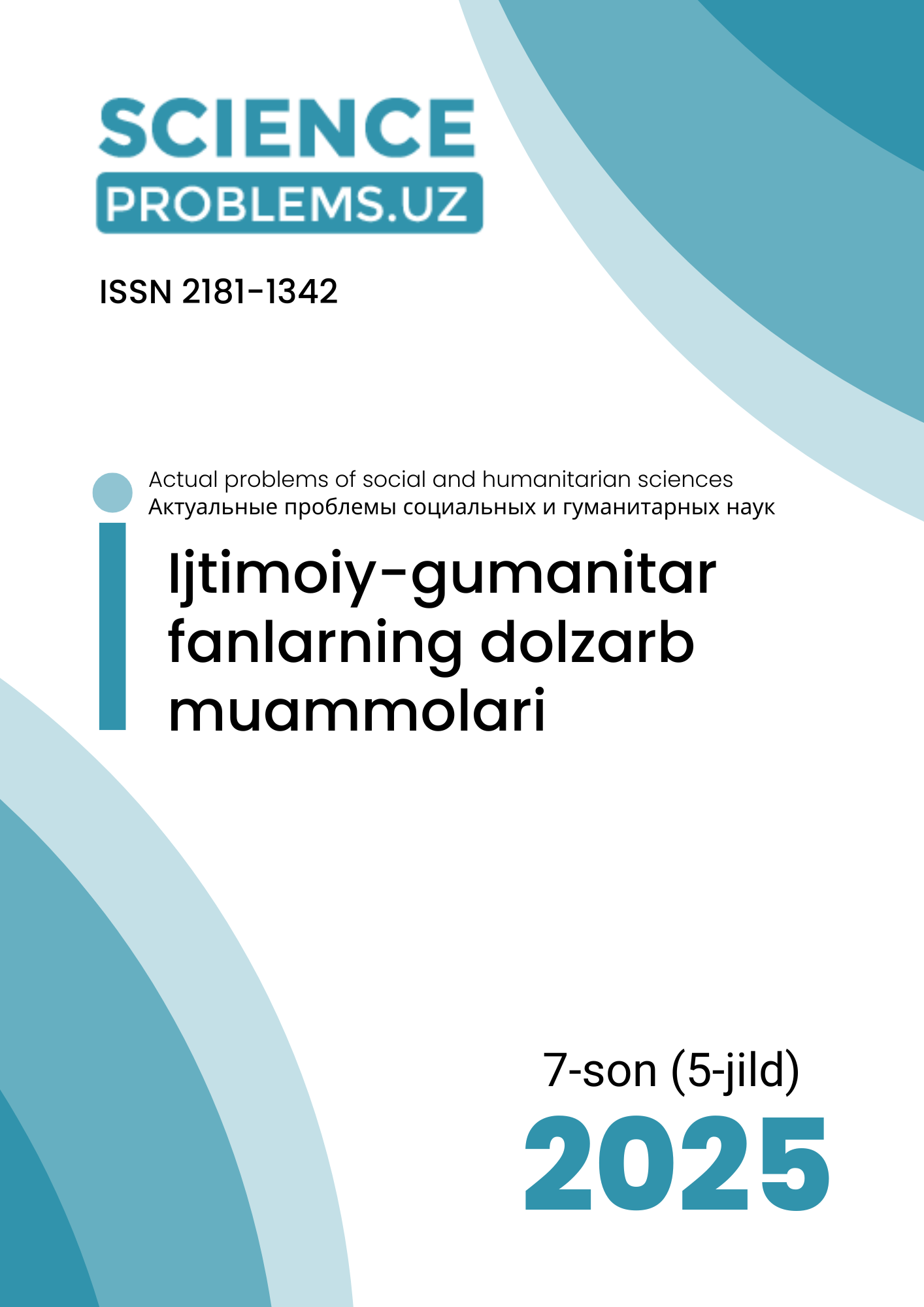IBN XALDUN IQLIMLAR NAZARIYASINING IJTIMOIY-FALSAFIY TAHLILI
Kalit so'zlar
https://doi.org/10.47390/SPR1342V5I7Y2025N11Kalit so'zlar
iqlim, ekvator, xalq, ong, gʻoya, jamiyat, taraqqiyot, geografik muhitAnnotasiya
Mazkur maqolada Ibn Xaldunning “iqlimlar nazariyasi” ijtimoiy va geosiyosiy yondashuvlar asosida tahlil qilinadi. Maqolada iqlimning inson tabiati, jamiyat taraqqiyoti, mehnatga layoqatlilik va ijtimoiy xarakter shakllanishiga taʼsirini ochib beriladi. Iqlimlar farqlari asosida insonlarning ruhiy-emotsional holati va maʼnaviy-axloqiy darajasi oʻrganiladi. Ibn Xaldun nazariyalari Monteskye qarashlari bilan solishtirilib, tabiiy muhitning jamiyat madaniyati va taraqqiyotiga bevosita emas, balki bilvosita taʼsiri asoslab beriladi.
Manbalar
1. Бартольд В.В. Ислам и культура мусульманства, –Москва: МГТУ, 1992, –С. 54;
2. Якубовский А.Ю. Проблема социальной истории народов Востока в трудах В.В. Бартольда, –Владимир: ВЛГУ, 1947, № 12. –С. 18-20;
3.Крачковский И.Ю. Арабская литература в XX в., –Санкт-Петербург: “ЛГУ”, 1946, –С. 28;
4. Беляев Е. Историко-социологическая теория Ибн Хальдуна, –Москва: “Историк-марксист”, 1940, № 4-5, –C. 79-80;
5. Иванов Н. А. «Китаб -аль -Ибар» Ибн Халдуна как источник по истории стран Северной Африки в XIV веке // Арабский сборник. –Москва:, 1959. -С 3-45;
6 Бациева С.М. Историко-социологический трактат Ибн Халдуна “Мукаддима”, –Москва: Наука, 1965. –С. 223;
7. Игнатенко А.А. Ибн Хальдун. –Москва: Мысль, 1980, –C. 20-65;
8. С. Бородин. Молниеносный баязет, –Москва: «Известия», 1973, –С. 20-40. Гофман А.Б. Семь лекций по истории социологии, – М. Книжный дом “Университет”, 1997, –С. 224.
9. Sobirovich, T. B. (2023). Basic Criteria for Building the Third Renaissance in Uzbekistan. Asian Journal of Applied Science and Technology (AJAST), 7(1), 149-157.








